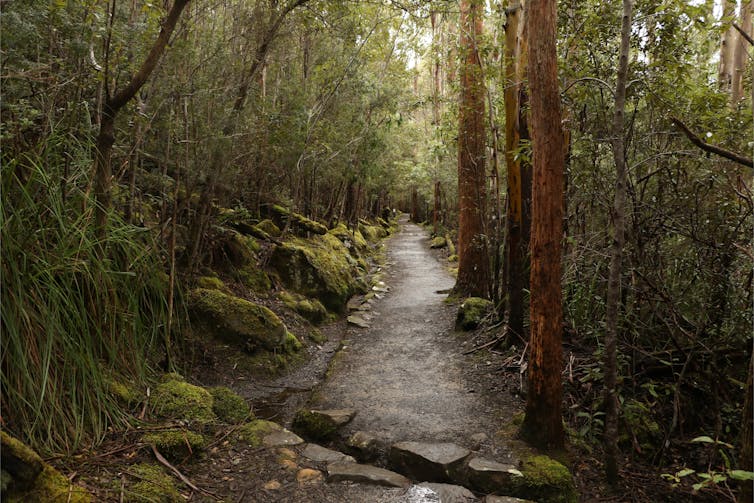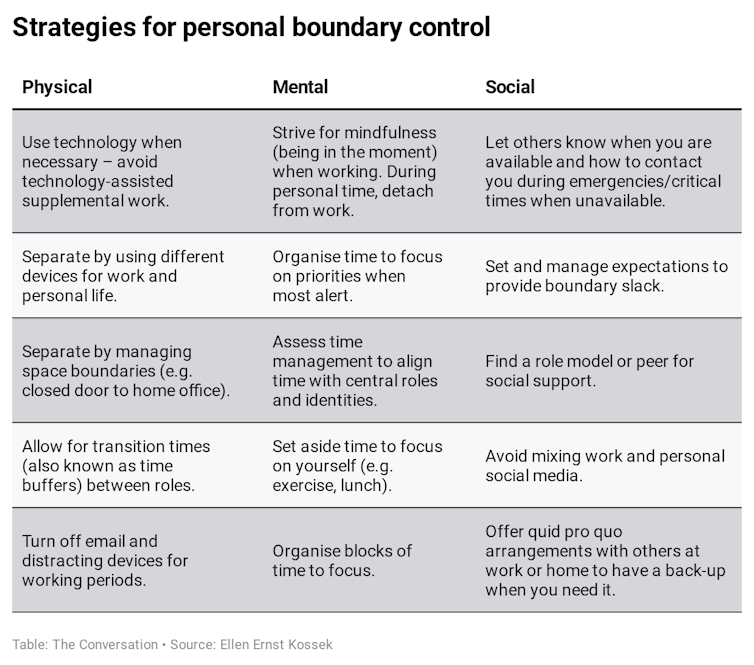
Karen Willis, Victoria University and Natasha Smallwood, Monash UniversityWith the Delta variant raging across New South Wales and Victoria, health services are stretched and strained. Behind the scenes is a fearful, anxious and overburdened workforce.
In the next few months, the health workforce will care for many more patients with COVID-19, with case numbers in NSW expected to peak over the next two weeks.
The nation is focused on plans to reopen borders and increase freedoms as soon as there are sufficiently high rates of vaccination. But what does “living with” COVID-19 look like for health professionals?
What have health workers had to deal with so far?
In 2020, we surveyed front-line health-care workers across Australia.
We found the pandemic had taken a considerable toll on the mental health of health-care workers, with significant numbers having symptoms of mental illness.
Alarmingly, 70.9% of our sample of 7,846 reported emotional exhaustion and 40% had moderate to severe symptoms of post-traumatic stress disorder.
Throughout the pandemic, health-care workers have been disproportionately infected – often through exposure to the virus at work.
Read more:
High rates of COVID-19 burnout could lead to shortage of health-care workers
We asked health-care workers about the key pressures of working during the pandemic. These were:
- constant workforce and occupational disruption, including being redeployed or working longer, unpaid hours. Those most affected were more likely to experience poorer mental health
- worries about being able to provide best care to patients, excluding families from visiting patients, and the emotional toll of caring for patients and their families when people died alone due to visitor restrictions
- being blamed by, and placing more stress on, co-workers when they were exposed to or infected with COVID-19 and therefore could not be at work
- worrying about people who were missing out on health care for various medical conditions during the pandemic because they were reluctant to seek health care or due to services being scaled back
- a surge in mental illness across the community due to social restrictions
- worries about being safe at work; and bringing COVID-19 home from work, thus infecting their families.
Not surprisingly, we also found many health professionals were contemplating leaving the health workforce.
That was then – what has changed?
None of those issues have been resolved. Now health-care workers are facing even further pressures.
The sheer number of exposure sites, including exposure sites in or around health centres, are a major cause for concern. Exposure to the virus for health-care workers is enormously disruptive and leads to a cycle of COVID-19 testing and being furloughed for 14 days.
The flow-on effects of quarantining are huge. How do you manage, at short or no notice, caring for your children, the impact on your partner, and the rest of the over-stretched workforce having to step up to do your job?
One exposure site can knock out hundreds of workers from the health-care system.
We don’t have an unlimited supply of health-care workers. We also need to staff additional health workplaces, such as COVID-19 testing clinics and vaccine hubs.
This means there’s no slack in the system when we need to suddenly replace workers. Consequently, some health services may need to be reduced.
How can our health system cope?
Health-care workers in our survey also talked about how COVID-19 has emphasised the need to address existing “cracks in the system”.
As one respondent, a psychologist in her 40s, explained:
Things that were not going well, and had been neglected, have been made worse. Rundown buildings, casualised workforces working across multiple hospitals, stretched services covering multiple wards, a culture of “toughing it out” […]
The Australian Medical Association, too, is calling for a system overhaul, rather than a “top-up” funding approach, stating:
Even pre-COVID, emergency departments were full, ambulances ramped, and waiting times for elective surgery too long.
If we are to live with COVID-19, we need a health-care system that can cope with the “normal” pressures of providing health care for 25 million people, intermittent crises, plus respond to both the short and long-term needs of people with COVID-19.
Health-care workers’ mental health is an issue not only for themselves and their families, but for patient care and workforce retention as well: it’s an occupational issue.
Preparing the health-care system to respond to crises such as pandemics, must include supporting health-care workers and protecting them from burnout, overwork, and exhaustion. We risk losing our most valuable asset in the health-care system if we fail to urgently respond to these issues.
Read more:
We’re seeing more COVID patients in ICU as case numbers rise. That affects the whole hospital
![]()
Karen Willis, Professor,Public Health, Victoria University, Victoria University and Natasha Smallwood, Assoc Professor, Monash University
This article is republished from The Conversation under a Creative Commons license. Read the original article.




